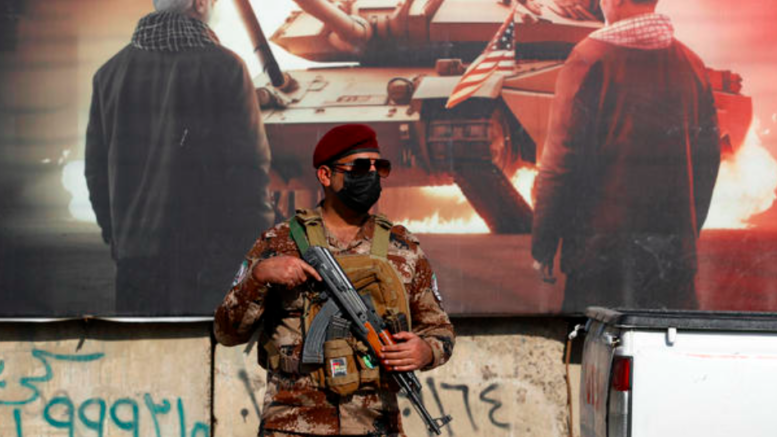President Biden has pledged to retaliate following a drone attack on a U.S. base known as Tower 22 in Jordan, resulting in the death of three American soldiers. The Islamic Resistance in Iraq, an Iran-backed group, has seemingly claimed responsibility for the strike. This prompts questions about the nature of the group, the motive behind the attack on a U.S. base, and its connections to Iran.
In the broader context of Iran’s involvement in the Middle East, there are approximately 40 militant groups backed by the country, including the Houthis in Yemen and Hezbollah in Lebanon. The Houthis have been disrupting global trade by targeting ships in the Red Sea, while Hezbollah engages in clashes with Israeli troops along the Israel-Lebanon border. The Islamic Resistance in Iraq, linked to the attack on Tower 22, operates around the Syria-Jordan border, encompassing various groups involved in activities like smuggling drugs or weapons.
The primary objective of outward-looking Iran-backed militant groups, supported by Iran, is to safeguard the Syrian regime led by Bashar al-Assad. These groups remain on standby to be mobilized in the event of uprisings that threaten the Syrian regime. They also closely monitor U.S. activities in the region, particularly due to Washington’s support for Syrian opposition groups during the civil war that began in 2011.
The Islamic Resistance in Iraq openly acknowledges its allegiance to Iran’s Supreme Leader, Ayatollah Ali Khamenei. The subgroups under this umbrella discuss their military involvement beyond Iraq’s borders, particularly in Syria. Iran employs varied means to support these groups, with some directly funded and operated by the Islamic Revolutionary Guard Corps (IRGC), a powerful entity designated as a foreign terrorist organization by the U.S. Others maintain their operational structures but rely on Iran for support, ranging from small arms and funding to long-range weapons capabilities.
The attack on Tower 22 is seen as an escalation by Baraa Shiban, an associate fellow at the Royal United Services Institute. He suggests that the Biden administration aims to handle such incidents separately, isolating them from ongoing situations like the conflict between Israel and Hamas. The militant groups, however, perceive these events as interconnected, escalating their actions against what they consider U.S. support for Israel.
Iran has denied involvement in the Tower 22 attack, emphasizing a desire to avoid direct conflict with the United States. However, Shiban argues that Iran might tolerate lower-level militants escalating against the U.S. or Israel. President Biden has pledged retaliation for the attack, with a commitment to protecting deployed U.S. forces in the region. John Kirby, a spokesperson for the National Security Council, underscored the U.S.’s avoidance of a broader conflict while ensuring necessary measures to safeguard its interests. An Iraqi official has reported evacuations by some militias within the Islamic Resistance in Iraq, anticipating U.S. retaliatory strikes after the attack on Tower 22.

